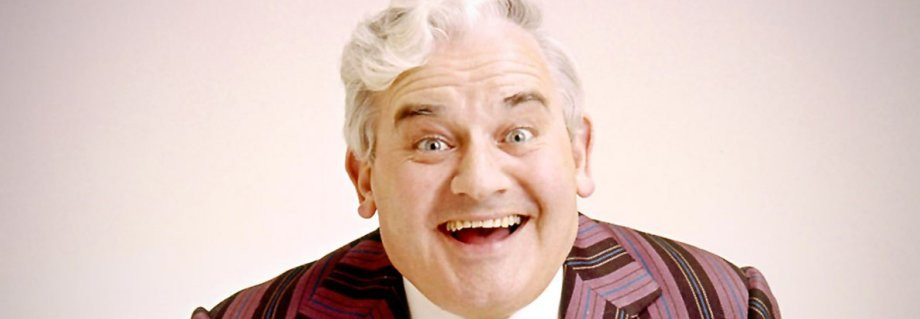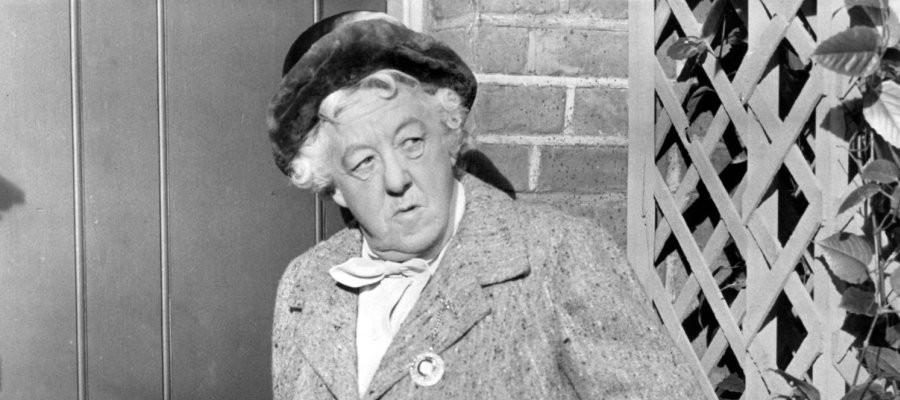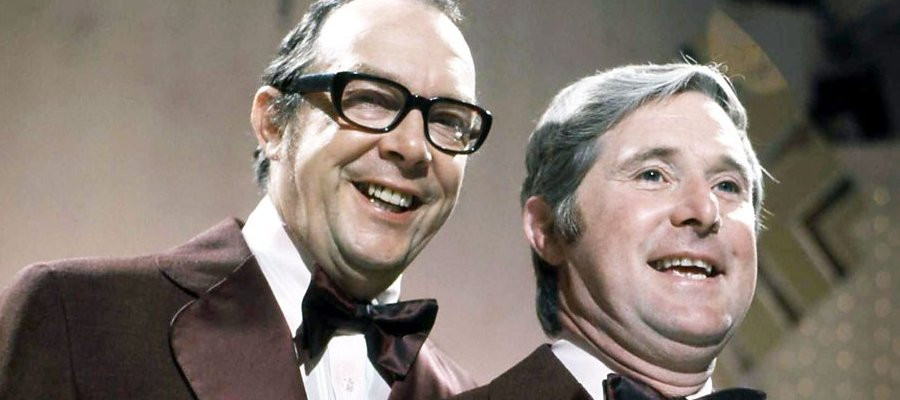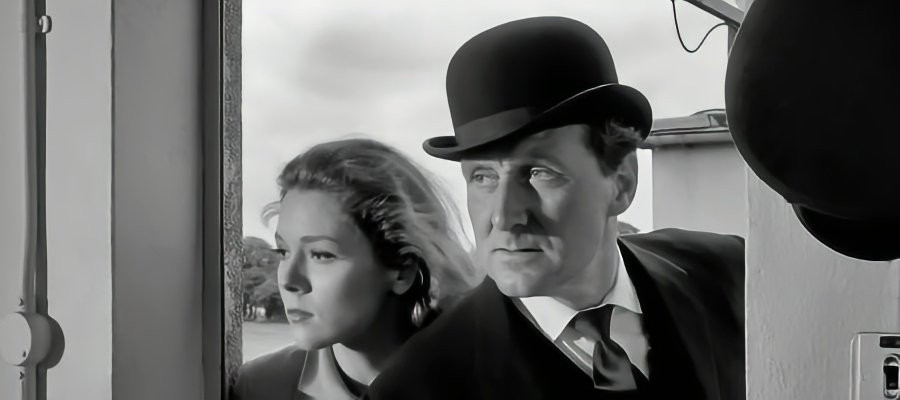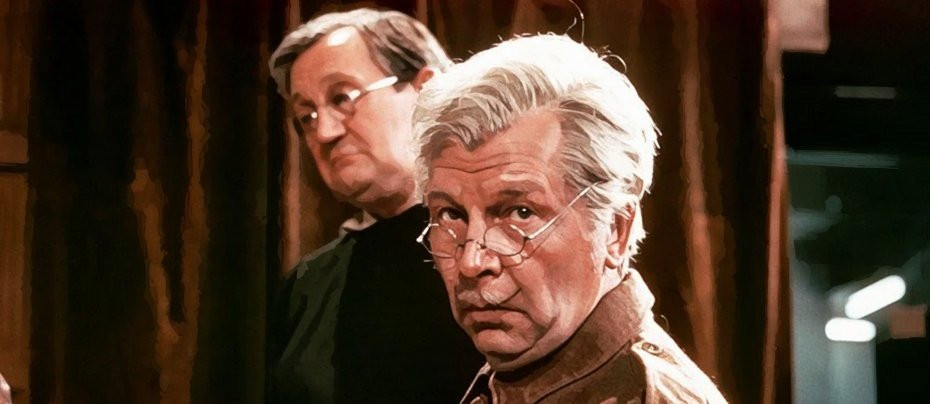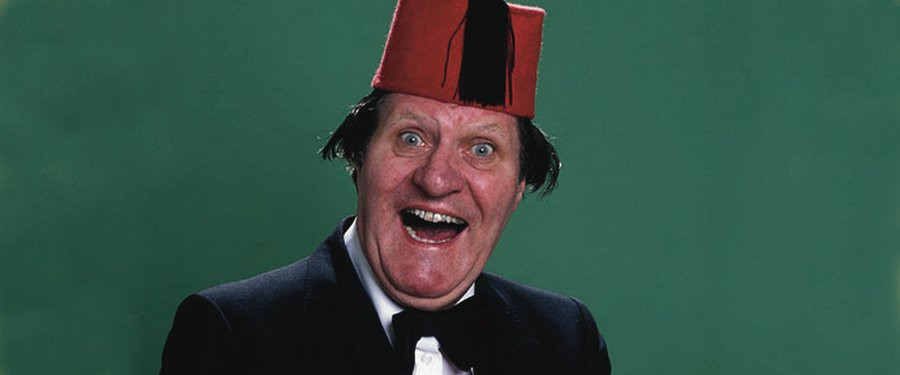
Tommy Cooper
"He did a great after dinner speech at the Water Rats. This great big man just stood up. That's all he did. He just stood up and the place was in absolute hysterics at a man standing up. Now, I don't care how much you study comedy, you can't define that, that ability to fill a room with laughter because you are emanating humour. After several minutes of laughter he turned to his wife and said, "I haven't said anything yet." And the whole place went up again." -Paul Daniels.
Some comedic talents are relatively simple to define. Some are much more difficult to encapsulate. Some, well, some are just pure...magic. That latter definition might as well have been created solely for one particular talent. A giant talent housed within a body every bit as big as its ability. That man was Tommy Cooper ...and he was the magic of comedy personified.
Tommy Cooper was born in Caerphilly, South Wales on 9th March 1922. He was two months premature, possibly the last time in his life that he was early. Being a premature baby in 1922 was not the best start in life and the doctor who delivered Tommy didn't hold out much hope for his survival. However, his grandmother kept him alive on drops of brandy and condensed milk and little Tom got stronger as each day passed. Within a few weeks he was well enough for the family to move to Exeter in Devon.
When he was eight years old his aunt Lucy bought him a magic set and Tommy spent hours playing with it and perfecting the tricks. At the age of sixteen he got a job on board a boat as an apprentice shipwright and it was here that he gave his first public performance. In typical Cooper style, each trick he performed went disastrously wrong. He was supposed to pull a series of coloured handkerchiefs from a cylinder, but they got stuck, a card fell out of his sleeve and Tommy ran out of the room, tears running down his face. When he finally managed to calm down he began to analyse just why he'd messed it up. "I got stage fright." He would recall years later. "That's why it all went wrong. But then I thought to myself, well, it might have all gone wrong but I got a laugh. Perhaps I should concentrate on that."
In 1940 Tommy got his call-up papers and went into the Horse Guards. Six foot four with size thirteen boots Tommy must have looked an impressive sight. "On the first day there I put my foot in the stirrup but the saddle slipped and I ended up underneath the horse's belly. Everyone was sitting on their horse except me." His unit was eventually dispatched to the Middle East where Tom was wounded in the right arm. Following this he joined the concert party entertaining the troops. It was here that he began perfecting his act of the magician whose tricks go wrong.
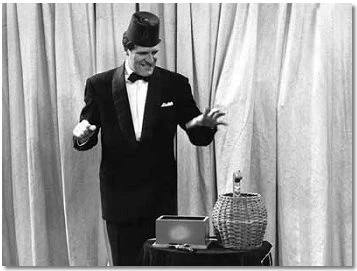
One night Tommy was performing his act to a group of soldiers in Cairo. The act involved a routine with a pith helmet but on this particular night, he reached up to his head to grab his hat only to find that he'd forgotten to wear it. As chance would have it a local waiter was walking past the stage carrying a tray of drinks. Tommy reached out and swiped the hat from the waiter’s head and used that instead. He got a bigger laugh wearing that fez than he ever did for the pith helmet, so it stayed, becoming his instantly recognisable trademark.
In 1947, a few months after leaving the army, Tommy went professional. He made his TV debut as early as December of that year in The Leslie Henson Christmas Eve Party. The speed of that success may well have led Tom into a false sense of security, but it was almost a year, November 1948, before he got his next real booking at the Collins Music Hall, Islington. For the next two years he toured the variety theatre circuit, but he only got to play minor venues and had to supplement his wages by working as a barrow boy in west London's Portobello Road market. Finally, after doing the circuit and working hard for two years he got a break at London's famous Windmill Theatre.
At the Windmill Tommy doubled up doing cabarets and in one week he actually performed 52 shows. By now Tom was getting a reputation as a genuine funny man and class act. It seemed that everyone wanted him. Between 1951 and 1952 he appeared at the London Hippodrome in Encore Des Follies and also got his big break in television when he starred in the BBC series It's Magic'. He made his debut at the 'London Palladium and did a tour for the all-important Moss Empire circuit, where he was booked as one of the bill-toppers.

By 1957 Tommy was a well-known star. He’d already had a successful debut at the Hotel Flamingo in Las Vegas and had to turn down a season at the Radio City Music Hall because he was already booked solid for the next two years in England. His first TV series was for Associated-Rediffusion, one of the new independent ITV stations. His show Life with Cooper was so successful that even before the end of its run, he was being offered another series. In 1963 he returned to America to record two Ed Sullivan Shows. Sullivan, who at the time had one of the most influential shows on US TV, introduced Tommy for the second show as "The funniest man to ever appear on this stage.
"So noon comes and goes and there's no sign of Tommy." The pub is beginning to fill up and I, being is a stickler for punctuality, am getting very annoyed. It's now 12.15 and I'm telling the producer that when Tom does arrive he's going to get a very big piece of my mind. At 12.45, the pub is totally full by now, the front door swings open and standing there is Tommy wearing a bowler hat and a pair of pyjamas. He walks up to our table and says, "I'm sorry I'm late. I couldn't get up."
His humour knew no class barriers either. Even The Queen of England wasn't safe from Tom's wit. Tommy was introduced to Her Majesty after a Royal Command Performance
"Do you think I was funny?" he asked her.
"Yes, Tommy." replied The Queen.
"You really thought I was funny?"
"Yes, of course I thought you were funny."
"Did your mother think I was funny?"
"Yes, Tommy. We both thought you were funny."
"Do you mind if I ask you a personal question?"
"No, but I might not be able to give you a full answer."
"Do you like football?"
"Well, not really."
"Can I have your Cup Final tickets?"
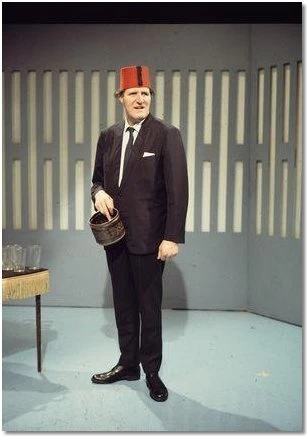
In March 1977, at a Variety Club lunch in honour of Tommy's 30 years in showbiz, he stood up in front of 400 guests. On cue, each one of them reached into their pocket and pulled out a fez which they stuck on top of their heads. Tom looked at them all for a moment, then, without saying a word, reached into his own pocket, pulled out a fisherman's cap and put it on. The whole place fell about.
On 15th April 1984, Tommy Cooper collapsed during a live television broadcast at Her Majesty's Theatre. The people in the audience were still laughing as Tommy, lying on the stage, had the curtain brought down on him and the show cut to a commercial break. The show's host, one of Tommy's great friends, Jimmy Tarbuck, recalled the moment. "As usual, he was supposed to make a mess of the last trick. He was wearing a long cloak from which he was supposed to start bringing out large objects. Then a ladder would come through his legs followed by a milk churn and a long pole. When Tommy fell backwards I thought he'd put another gag in. I thought he was going to do some levitation trick from under his cloak. We all expected him to get up and we waited for the roar of laughter. It was terrible when he didn't." Ten minutes later Tommy Cooper died on the way to hospital.
That rarest of things, a performer equally as loved and respected by his peers as by his fans, Tommy Cooper's child-like vulnerability and deceptively simple brand of humour made him the most loved and impersonated of comedians. From a child in the school playground to actors of the stature of Sir Anthony Hopkins, Tommy is the ideal source of affectionate impersonation. So ideal in fact, that for many years he held the distinction of being the most impersonated man in the country.
Tommy Cooper's secret for success, like all truly great comedy, should never be exposed to close scrutiny. That it was real and that he possessed something which elevated his comedy to the heights of genuine art, should just be accepted and cherished.
Tommy Cooper was, quite simply, real magic. And in the end, what more do we really need to know?
Published on February 20th, 2019. Written by Laurence Marcus & SRH (2000) for Television Heaven.


